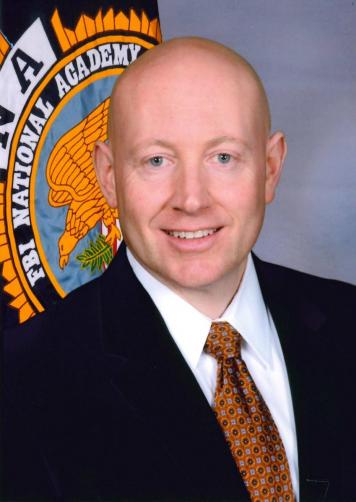Simsbury Police Captain Nick Boulter Graduates from FBI National Academy

Two hundred and thirty law enforcement officers graduated on March 18, 2016 from the FBI National Academy Program at Quantico, Virginia. Simsbury Police Captain Nick Boulter, an 18-year veteran of the department, participated in the 263rd Session of the National Academy, consisting of men and women from 47 states. Included in the class are members of law enforcement agencies from the District of Columbia, 27 international countries, four military organizations, and five federal civilian organizations.
Internationally known for its academic excellence, the National Academy Program, held at the FBI Academy, offers 10 weeks of advanced communication, leadership, and fitness training for selected officers having proven records as professionals within their agencies. On average, these officers have 19 years of law enforcement experience and usually return to their agencies to serve in executive-level positions.
Attendees are drawn from every state in the union, from U.S. territories and from over 150 international partner nations. Participation is by invitation only, through a nomination process. There is a very stringent selection process to attend the academy with the waiting list often being three to five years.
Training for the program is provided by the FBI Academy instructional staff, special agents, and other staff members holding advanced degrees, many of whom are recognized internationally in their fields of expertise. FBI Deputy Director Andrew McCabe was the principal speaker at the ceremony.
“This is a great honor for a member of our force to complete this prestigious program,” Chief Peter Ingvertsen said.
While in attendance, Capt. Boulter studied areas such as: Public Speaking, Fitness in Law Enforcement, Leading At-Risk Employees, Employment Law Issues for Law Enforcement Administrators, Media and Managing the Law Enforcement Image, and Leadership, Ethics and Decision Making.
“The FBI National Academy provided an opportunity to carefully examine a multitude of contemporary policing issues from a leadership perspective. Information and experiences were shared between law enforcement agencies that varied in size, culture, demographics and objectives. The FBI NA afforded academic, professional and unique physical fitness challenges. This was a tremendous opportunity to study and network with some of the top police executives from around the world. The experience was invaluable,” said Capt. Boulter.
Capt. Boulter started his law enforcement career as a patrolman for the Simsbury Police Department in March 1999.
The FBI National Academy is a professional course of study for U.S. and international law enforcement leaders. It serves to improve the administration of justice in police departments and agencies at home and abroad, and to raise law enforcement standards, knowledge and cooperation worldwide.
As a graduate, Capt. Boulter joins the less than one tenth of one percent of law enforcement officers in the world to attend this esteemed program. Chief Peter N. Ingvertsen is the only other current Simsbury Police Department member to graduate from the FBI NA graduate (Session 161 in 1990). Following graduation, each officer has the opportunity to join the FBI National Academy Associates, a dynamic organization of more than 15,000 law enforcement professionals who actively work to continue developing higher levels of competency, cooperation and integrity across the law enforcement community.
About the FBI National Academy:
The FBI National Academy was created in July 29, 1935, with 23 students in attendance, in response to a 1930 study by the Wickersham Commission that recommended the standardization and professionalization of the law enforcement departments across the U.S. through centralized training. With strong support from the International Association of Chiefs of Police, and with the authority of Congress and the Department of Justice, the “FBI Police Training School” was born. Courses at that time included scientific aids in crime detection, preparation of reports, criminal investigation techniques, and administration and organization. With the advent of World War II, courses were added in espionage and sabotage.

